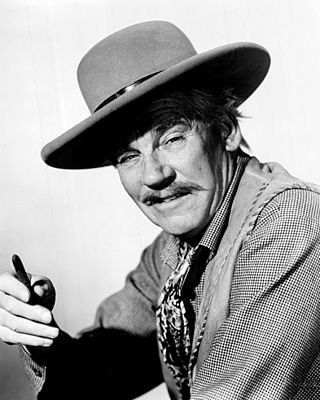
Walter Thomas Huston was a Canadian actor and singer. Huston won the Academy Award for Best Supporting Actor for his role in The Treasure of the Sierra Madre, directed by his son John Huston. He is the patriarch of the four generations of the Huston acting family, including his son John, grandchildren Anjelica Huston and Danny Huston, as well as great-grandchild Jack Huston. The family has produced three generations of Academy Award winners: Walter, his son John, and granddaughter Anjelica.
Candor is a town in Tioga County, New York, United States. The population was 5,172 at the 2020 census.
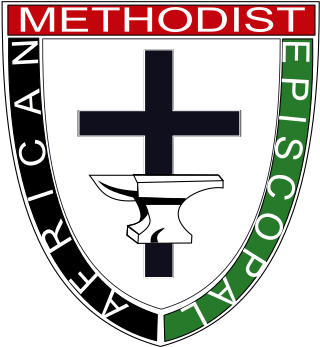
The African Methodist Episcopal Church, usually called the AME Church or AME, is a Methodist denomination based in the United States. It adheres to Wesleyan–Arminian theology and has a connexional polity. It cooperates with other Methodist bodies through the World Methodist Council and Wesleyan Holiness Connection.

Herbert George Welch was an American bishop of the Methodist Episcopal Church, The Methodist Church and the United Methodist Church. He was elected to the episcopacy in 1916. He also distinguished himself as a Methodist pastor, and as the fifth President of Ohio Wesleyan University, Delaware, Ohio.
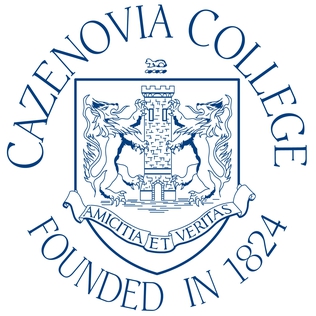
Cazenovia College was a private college in Cazenovia, New York. Founded as the Genesee Seminary in 1824 and sponsored by the Methodist Church in 1894, the college adopted the name of Cazenovia Seminary. It was reorganized in 1942 after church sponsorship was withdrawn and was Cazenovia College for Women from 1961 to 1982, when the college became co-educational again. It closed on June 30, 2023, due to poor finances and other economic issues.

Franklin Elmer Ellsworth Hamilton was an American bishop of the Methodist Episcopal Church, elected in 1916.

Calvin Kingsley was an American bishop of the Methodist Episcopal Church elected in 1864.
Leroy Charles Hodapp distinguished himself as a Methodist pastor, district superintendent, Annual Conference official, and bishop of the United Methodist Church (U.M.C.) who was elected in 1976.
Raymond LeRoy Archer, was an American bishop of The Methodist Church. He was elected in 1950.
The Christian Advocate was a weekly newspaper published in New York City by the Methodist Episcopal Church. It began publication in 1826 and by the mid-1830s had become the largest circulating weekly in the United States, with more than 30,000 subscribers and an estimated 150,000 readers. After changes of name and a split into two publications, publication ceased in 1975.
George Peck was a minister in the Methodist Episcopal Church who helped to found Cazenovia Seminary, and became its president in 1835.

William Rice (1821–1897) was a Methodist Episcopal minister, author, and from 1861 to his death in 1897, the President and Executive Director of the Springfield City Library Association. He was an important public figure in nineteenth-century Springfield, Massachusetts.
Benjamin Franklin Williams (1819–1886) was a Methodist minister and Republican politician who served three terms in the Texas Legislature, served as a delegate to two Texas Constitutional Conventions, and helped found the freedmen's community of Kendleton.
Albertus Theodore Briggs was a Methodist Episcopal minister for more than 40 years, and a District Superintendent in the Hammond and Greencastle districts in Indiana. For years, he was the President of the Preachers' Aid Society, now the United Methodist Foundation of Indiana.
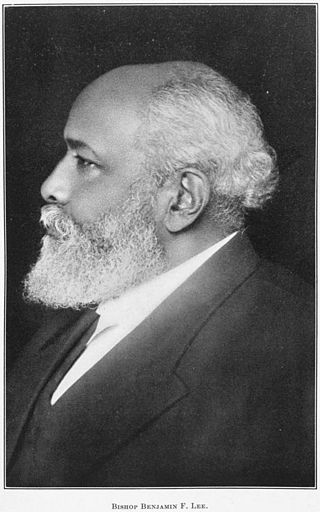
Benjamin Franklin Lee was a religious leader and educator in the United States. He was the president of Wilberforce University from 1876 to 1884. He was editor of the Christian Recorder from 1884 to 1892. He was then elected a bishop in the African Methodist Episcopal (AME) church, serving from 1892 until his resignation in 1921, becoming senior bishop in the church in 1915.

Fanny Elmina Rose, known professionally as Bayonne Whipple, was an actress and vaudeville performer and the second wife of Canadian actor Walter Huston.
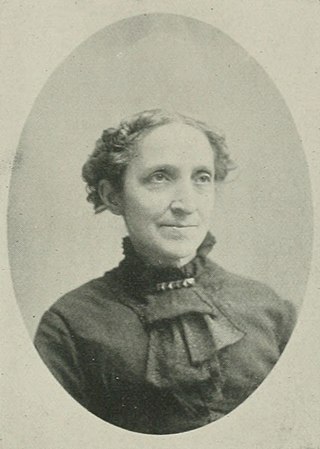
Mary Helen Peck Crane was a 19th-century American church and temperance activist, as well as a writer. She was the mother of the writer, Stephen Crane. She died in 1891.

Bishop Singleton T. Jones was a religious leader in the African Methodist Episcopal Zion Church. Although he had little education, Jones taught himself to be an articulate orator and was awarded the position of bishop within the church. Besides being a pastor to churches, he also edited AME Zion publications, the Zion's Standard and Weekly Review and the Discipline.
Rev. John E. Price was an elder and minister of the African Methodist Episcopal Zion Church. He was a minister for around 50 years. He was the founder and president of the Garnet Equal Rights League at Harrisburg. He wrote hymns and was an editor for the Zion Church Advocate and, with William H. Day, the Zion Church Herald and Outlook, the first paper of the AME Zion Church. Day was a minister, abolitionist, and educator.











